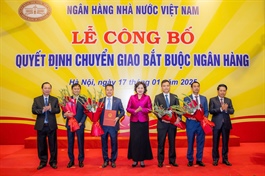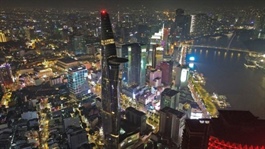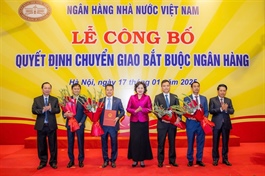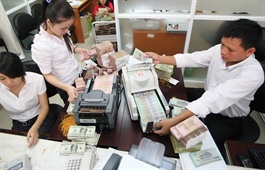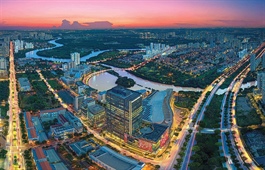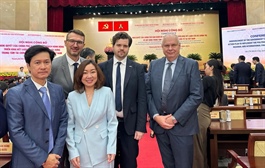Developing Ho Chi Minh City into int’l financial center should begin with small changes: Dragon Capital chairman
Developing Ho Chi Minh City into int’l financial center should begin with small changes: Dragon Capital chairman
The development of an international financial center (IFC) in Ho Chi Minh City is a long-term journey. It is not impossible, but it requires a well-thought-out plan and must start with small steps, Dominic Scriven, chairman of Dragon Capital, which manages investments valued at a combined US$6 billion, told Tuoi Tre (Youth) newspaper in a recent interview.
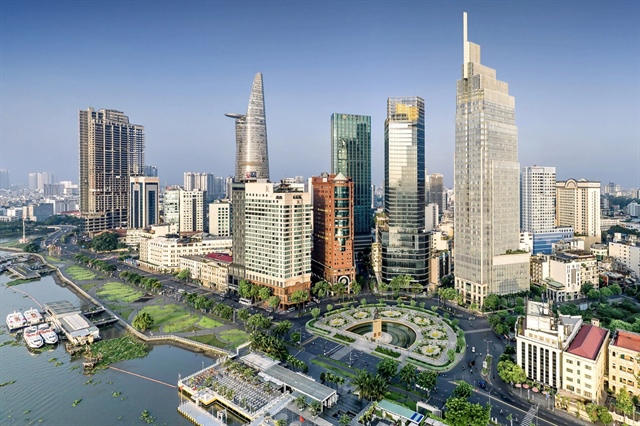
Ho Chi Minh City has the potential to develop into an international financial center. Photo: Van Trung / Tuoi Tre |
IFCs are not just a project, but a comprehensive ecosystem. They are formed from trust and interactions that create transactions and optimize capital with the effective support of technology.
Scriven did not describe himself as an expert on IFCs but as an individual working in the financial sector who has operated in various countries and understands Vietnam's development aspirations.
He said that developing an international financial center might be a bit ambitious for Ho Chi Minh City, though it should still focus on developing infrastructure, ports, human resources, and logistics to make individuals and organizations from everywhere willing to come and set up their operations in Vietnam.
He likened the city’s potential transformation to creating a market, saying that “If we want to establish a market, we first need to attract vendors.”
The development history of IFCs in Singapore, Hong Kong, and even Dubai also began with ports and trade activities.
When there is a port for trade, ships will dock there. From that, warehouses, transactions, and companies protecting goods will be formed.
Then, there will be restaurants, markets, farmers, and cold storage facilities for supplying goods and banks.
Ho Chi Minh City already has many of these facilities, but still needs to supplement what it currently has with more as it continues to open up further.
He added that there are two groups of tasks required to build an IFC, including attracting foreign resources and adding functions to the existing financial sector.
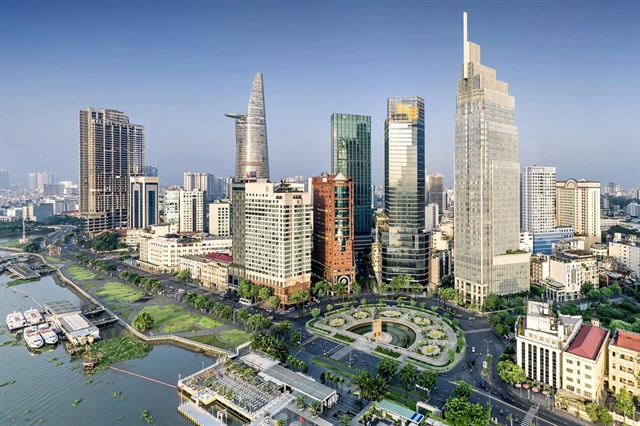 |
| Dominic Scriven, chairman of Dragon Capital. Photo: Hong Phuc / Tuoi Tre |
IFCs in Singapore, Hong Kong, Dubai, and even London were not financial centers at the beginning. They were international trading hubs where individuals and organizations from different sectors met, conversed, negotiated, and signed business contracts.
Once these cities became venues for business transactions, a financial center was formed.
As for adding functions to the local financial sector, Scriven said Vietnam currently has a commercial banking system and a capital market, but it should supplement these with functions such as raising capital for infrastructure, hi-tech enterprises, e-commerce, and green finance.
It is currently difficult to raise capital for these sectors, he said.
There are currently no e-commerce companies listed on the local stock market as companies must be profitable to list. If they cannot list, they cannot raise capital.
Asia is home to many multinational corporations. They place their financial units in Singapore, their largest factories in China, component factories in Vietnam, and regional headquarters in Hong Kong.
Given current trade activities, Vietnam could attempt to attract them to set up their regional headquarters in Ho Chi Minh City, where there are plenty of people proficient in foreign languages like English and Chinese.
Businesses that move to an IFC but are already taxed abroad should not be taxed again in Vietnam, the Dragon Capital chairman suggested,
It is also important to boost the operation of an international arbitration center in Vietnam, and consider issuing debt security.
He also called on local policymakers to remove obstacles to withdrawing money.
In reality, Vietnam’s banking system has become safer than many advanced countries after the State Bank of Vietnam required biometric verification for transfers. As a result, concerns about money laundering and fraud have significantly decreased.
Ho Chi Minh City can begin with playing a major role in economic, trade, and financial activities in Vietnam and in the region.
However, its success will depend on Vietnam's economy, population size and competitiveness to build trust and prestige, along with the government's policies, Scriven noted, saying that the country needs time to propose suitable suggestions.
Ho Chi Minh City is the only city in Vietnam listed in the Global Financial Centres Index. The first time it appeared on the list was in 2022 when it ranked 102nd out of 119 cities.
In the latest ranking, the southern Vietnamese metropolis is ranked 105th out of 121 cities. In the Asia-Pacific region, 30 cities are listed in the ranking, and Ho Chi Minh City is placed 29th, just above Manila.
In November of last year, the Politburo gave the green light for a project to develop a comprehensive international financial hub in Ho Chi Minh City.
Chairman of the Ho Chi Minh City Administration Phan Van Mai earlier stated that the city’s international financial center would be established by 2030.








